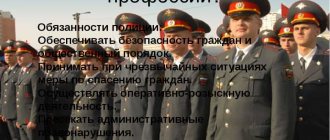New edition of Art. 58 Code of Criminal Procedure of the Russian Federation
1. Specialist - a person with special knowledge, involved in participation in procedural actions in the manner established by this Code, to assist in the discovery, securing and seizure of objects and documents, the use of technical means in the study of criminal case materials, to pose questions to the expert, and also to explain to the parties and the court issues within his professional competence.
2. The calling of a specialist and the procedure for his participation in investigative and other procedural actions, court hearings are determined by Articles 168 and 270 of this Code.
2.1. The defense cannot be denied a request to involve a specialist in the criminal proceedings in the manner prescribed by this Code to clarify issues within his professional competence, except for the cases provided for in Article 71 of this Code.
3. The specialist has the right:
1) refuse to participate in criminal proceedings if he does not have the appropriate special knowledge;
2) ask questions to participants in the investigative action with the permission of the inquiry officer, investigator and court;
3) get acquainted with the protocol of the investigative action in which he participated, and make statements and comments that must be entered into the protocol;
4) bring complaints against the actions (inaction) and decisions of the inquiry officer, the head of the inquiry unit, the head of the inquiry body, the inquiry body, the investigator, the prosecutor and the court that limit his rights.
4. A specialist does not have the right to evade appearing when summoned by an inquirer, investigator or in court, as well as to disclose preliminary investigation data that became known to him in connection with his participation in criminal proceedings as a specialist, if he was warned about this in advance in the manner prescribed by law. established by Article 161 of this Code. The specialist is responsible for the disclosure of preliminary investigation data in accordance with Article 310 of the Criminal Code of the Russian Federation.
Article 58 specialist
The CPC specialist gives a clear concept.
The article in question states that this is: “a person with special knowledge” that no other participant in the process possesses. Accordingly, only a person who has education and experience in the area in which clarification is required can act as such a person. For this category of participants, there is also another definition - expert. The main difference between these persons is that the expert must not only have knowledge, but also be an employee of a specialized institution that has the authority to conduct examinations, give opinions and assessments. Findings and expert opinions become indisputable evidence for investigative authorities and the court.
It is not allowed to doubt the results of the examination.
Today, not only government institutions, but also private ones have the opportunity to conduct an examination, which leads to the risk of bribing the employee who conducted the analysis and gave the conclusion.
In this case, the decision to order a re-examination remains at the discretion of the body to which such a request was received.
In the article in question. 58 of the Code of Criminal Procedure does not indicate the procedure for calling a specialist and participating in procedural activities. At the same time, the article contains a reference to the fact that these provisions are regulated by other articles of the Code of Criminal Procedure of the Russian Federation - 168 and 270, where these nuances are listed in detail.
Particular attention in the legal norm is paid to the right of the defense to involve a specialist in the criminal process if any additional clarification is required. The article states that none of the participants in criminal proceedings has the right to refuse a defense lawyer to satisfy such a request.
At the same time, the court can assess the objectivity of such a call, whether the issues that require the presence of a specialist to clarify really play an important role in considering the case and establishing the truth.
Basic rights of a specialist:
- Refuse to participate in procedural actions if the person called does not have the necessary knowledge to answer the questions posed.
- Ask questions to all participants in the process, this applies to both investigative measures and the court. The only caveat is that in court you will first need to get the judge's permission to ask the necessary questions.
- Familiarize yourself with the compiled protocol of the actions in which the specialist took part, and submit your written objections or complaints to it. If during the preparation of the protocol there were inaccuracies, errors or misinterpretation of the words and conclusions of the specialist.
- File complaints against the actions of the participants in the process if they in any way limited the rights of the specialist or prevented him from properly performing his duties.
The article also contains a warning for the specialist, because he does not have the right to avoid appearing before investigative or judicial authorities if they call him as such a participant in the process.
The specialist is prohibited from:
- disclose information that he learned while taking part in the preliminary investigation and consideration of the case in court;
- conceal the actual state of affairs and provide false information to questions asked to him;
- purposefully influence the actions and words of the participants in the process, inclining the court to the side of one of the participants.
This person should not take the position of a defendant (accused) or a victim, because the conclusion of a specialist in criminal proceedings can become decisive. Therefore, he, as a participant, is required to be impartial.
The only thing that is required of him is to answer questions from the investigator, interrogator, court or parties to the criminal process.
Everything about criminal cases
Go to the text of the Code of Criminal Procedure
Url Additional information:
Specialist
- Part 1 58 Code of Criminal Procedure
specialist is a person with special knowledge
Call a specialist
- Part 2 58 Code of Criminal Procedure
the call of a specialist is carried out in accordance with
168 Code of Criminal Procedure
- Part 2.1 of 58 Code of Criminal Procedure
the defender cannot be refused to call a specialist
Specialist rights
- Part 3 58 Code of Criminal Procedure
the specialist has the right:
— clause 1, part 3, 58 Code of Criminal Procedure
refuse if you don’t have the knowledge
- clause 2, part 3 58 Code of Criminal Procedure
ask questions to participants
- clause 3, part 3 58 Code of Criminal Procedure
get acquainted with the action protocol
— clause 4, part 3, 58 Code of Criminal Procedure
make complaints
Responsibilities of a specialist
- Part 4 58 Code of Criminal Procedure
a specialist does not have the right to avoid appearing and disclose information
PLENAMA OF THE Supreme Court
- paragraph 20
Plenum No. 28 participation of a specialist in a court hearing
— P.
Plenum No. 51 participation of a specialist in the court of first instance
Additional Information
Engaging a specialist
- part 1 144 of the Code of Criminal Procedure
the involvement of specialists is possible before the initiation of a case
- Part 1 168 Code of Criminal Procedure
involvement of a specialist during the investigation
— Part 4 217 Code of Criminal Procedure
petition to call specialists to familiarize themselves with the case
— 251 Code of Criminal Procedure
participation of a specialist in the judicial stage
- paragraph 19
Plenum No. 28 calling a specialist to evaluate the expert’s opinion
Interrogation in court
- paragraph 19
Plenum No. 28 calling a specialist to evaluate the expert’s opinion
— P.
Plenum No. 51 interrogation of a specialist in court
The court has no right to refuse
- Part 2.1 58 Code of Criminal Procedure
the right of the defense to call a specialist; the court has no right to refuse
— Part 4 271 Code of Criminal Procedure
the court has no right to refuse to interrogate a specialist who has appeared
- paragraph 22
Plenum No. 28, the court has no right to refuse to interrogate a specialist
— P.
Plenum No. 51, the court has no right to refuse to interrogate a specialist
Expert opinion
- Part 2.2 159 Code of Criminal Procedure
you cannot refuse to include a specialist’s opinion
— clause 6
Plenum No. 28 use in proving a specialist’s conclusion
Practical aspects
Participation of a specialist
in criminal proceedings, from the prosecution and defense
Article 58 of the Code of Criminal Procedure. Specialist
1) Specialist - a person with special knowledge, involved in participation in procedural actions in
the manner established by the Criminal Procedure Code, for:
- assistance in the discovery, securing and seizure of objects and documents,
- use of technical means,
- in the study of criminal case materials,
Url Additional information:
- paragraph 19
Plenum No. 28 calling a specialist to assist in questioning an expert
- to ask questions to the expert,
Url Additional information:
— P.
Plenum No. 51 expert judgment in the form of a conclusion, or orally
- as well as to explain to the parties and the court issues within his professional competence.
2) The calling of a specialist and the procedure for his participation in investigative and other procedural actions, court hearings are determined by 168 Code of Criminal Procedure and 270 Code of Criminal Procedure.
Url Additional information:
Has no right to refuse
- Part 2.1 58 Code of Criminal Procedure
the right of the defense to call a specialist; the court has no right to refuse
- Part 1 168 Code of Criminal Procedure
involvement of a specialist during the preliminary investigation
— Part 4 271 Code of Criminal Procedure
the court has no right to refuse to interrogate a specialist who has appeared
- paragraph 22
Plenum No. 28, the court does not have the right to refuse to interrogate a specialist who has appeared
— P.
Plenum No. 51, the court has no right to refuse to interrogate a specialist who has appeared
2.1) The defense cannot be denied a request to involve
a specialist in the criminal proceedings in the manner established by the Criminal Procedure Code to clarify issues within his professional competence, except for the cases provided for in Article 71 of the Code of Criminal Procedure
.
3) The specialist has the right:
1). refuse to participate in criminal proceedings if he does not have the appropriate special knowledge;
2). ask questions to participants in the investigative action with the permission of the inquiry officer, investigator and court;
Url Additional information:
- Part 6 166 Code of Criminal Procedure
The protocol is presented to all participants for review
3). get acquainted with the protocol of the investigative action in which he participated, and make statements and comments that must be entered into the protocol;
4). bring complaints against actions (inaction) and decisions of the inquirer, investigator, prosecutor and court that limit his rights.
4) The specialist has no right:
- to evade appearing when summoned by an inquiry officer, investigator or to court,
- as well as disclose the data of the preliminary investigation that became known to him in connection with his participation in criminal proceedings as a specialist, if he was warned about this in advance in the manner established by 161 of the Code of Criminal Procedure.
For the disclosure of preliminary investigation data, the specialist is responsible in accordance with Article 310 of the Criminal Code.
Return to the text of the Code of Criminal Procedure
Seek advice
The role of the translator
Not one process is similar to another, and the parties rarely manage to come to an agreement. In cases where understanding of the parties is literally impossible, the services of an interpreter are necessary to make a decision on the case. The specialist’s task is to interpret the interrogation of the foreigner.
Article 59 is devoted to the regulation of the work of a translator. To begin with, let’s clarify which norms of the Code of Criminal Procedure guarantee the participation of this specialist in criminal proceedings. 18th century The Code of Criminal Procedure declares that the court conducts its work in Russian.
Paragraph 2 of this article establishes that if those participating in the process do not understand or do not understand Russian well, they need to be informed of their right:
- declare the necessary information during the trial;
- explain yourself and answer questions;
- complain and make comments;
- order a lawyer and translator;
- read materials;
- speak in court in a national or well-known language.
The same paragraph establishes the right of a person to the assistance of an interpreter free of charge. Documents that a participant who does not speak Russian should familiarize himself with. Documents must be translated into his native language or one that he speaks.
The code does not name cases when one of the participants in the process is hard of hearing and may require sign language interpretation. The commentary to the Code of Criminal Procedure explains that a translator is also someone who is proficient in sign language interpretation.
Retraction
Art. 68 regulates the recusal of a language specialist:
- if it turns out that he was a victim or a witness in an ongoing trial;
- took part in another capacity in the same case - an expert, specialist, witness, court secretary, etc.;
- is in a close relationship with any of the participants in this process.
The inquirer and the investigator can challenge him, and in the case of the circumstances specified in Article 165 of the Code of Criminal Procedure - the court, in the presence of the above grounds and the parties. A witness, expert or specialist, if they find that the interpreter is incompetent, also have this authority.
Judicial practice under Article 58 of the Code of Criminal Procedure of the Russian Federation
The letter of the law states that a specialist cannot refuse to participate in a criminal trial if he is summoned.
In practice, things are different. Most of the persons involved in this capacity try by all possible means to avoid appearing. The situation is further complicated by the fact that now there are a lot of private enterprises and organizations that they want to exert legal action on, which is problematic.
Moreover, the involvement of this participant most often occurs at the stage when the case is being considered in court. In such a situation, a summary of the results of the examination is not enough. Another factor that speaks in favor of calling a specialist is time. Appointing and conducting an examination is a complex process that requires a lot of time. That is why, in order not to delay the consideration of criminal material for a year, or even more, they try to involve specialists in order to immediately clarify all the existing issues and nuances at the court hearing.
According to existing practice, defense attorneys often insist on calling such a participant. They use the knowledge of such persons as an exculpatory moment for their clients.
Not everyone can call themselves a specialist. When such a person is required to participate in the process, searching for a candidate is a complex nuance.
Requirements for a specialist:
- presence of higher specialized education;
- good knowledge in the field of work;
- work experience of at least one year.
That is, a new employee who has just graduated from college cannot be involved in such a capacity to participate in a criminal trial. A specialist is not a court vacancy; he is an outsider, educated and experienced in the field in which it is necessary to obtain certain clarifications.
A meeting with the participation of a minor, without the presence of a teacher and school psychologist, is generally not allowed. This especially applies to situations where a minor will be interrogated or is an accused.
This participant can give his conclusion orally or in writing; there is even an option for compiling it in electronic form as a presentation. Comments and legal advice
Practicing lawyers say that the new edition of the Code of Criminal Procedure does not contain changes in the procedure and grounds for calling a specialist. In the case when a summons of such a person occurs at the stage of inquiry or investigation, sending a summons is not mandatory. In practice, most often the call is made by telephone. However, if participation is necessary in a court hearing, the summons occurs only by an official summons sent by mail or delivered in person. The latter is obliged to appear or notify in advance of the impossibility of arriving for justified reasons.
The Supreme Court gave clarifications regarding what document should be used to document an interview with a specialist - an interrogation protocol.
Collection of evidence, extraction of technical means and mechanisms occurs with the involvement of full-time law enforcement experts.
In this case, investigators and interrogators are not particularly keen to involve outsiders in order to maintain the secrecy of investigative activities and the legality of the seized evidence.
The topic of the participation of specialists in criminal proceedings is still relevant in law faculties, as a basis for course work. After all, leading lawyers and practitioners are still arguing about how justified the division into separate specialist and expert participants was. The legal essence of these participants is identical, the difference is only in the status, scope of rights, powers and obligations.
Recommendations from practicing lawyers:
- Do not neglect the explanations of specialists.
- If professional knowledge is required, it is better to promptly submit a request for the presence of such a participant in the process at the meeting.
- When deep knowledge in a technical field is required, it is best to order an examination rather than rely on the knowledge of a specialist.
The role of a specialist during an investigation or trial cannot be ignored. His testimony, explanations, and technical perspective on the situation can provide very valuable information that other participants may simply not notice.
Specialist (Article 58 of the Code of Criminal Procedure of the Russian Federation)
This subject is not as clear as an expert. A specialist in his current status is one of the most complex figures in criminal proceedings.
The appearance of a specialist along with an expert is explained by the fact that examination does not fulfill all the needs of involving knowledgeable persons in the criminal process. In addition to the examination, there is a need to use special knowledge in other procedural actions, for example, when examining a corpse, when a medical specialist helps the investigator discover and consolidate important information. Therefore, in 1966, a specialist appeared in the Code of Criminal Procedure of the RSFSR, intended for one purpose - to assist the investigator, interrogating officer in the conduct of investigative actions (Article 133¹ of the Code of Criminal Procedure of the RSFSR). The participation of a specialist was reflected only in the protocol of the corresponding investigative action, i.e., a decision on his involvement was not made, and the specialist did not draw up any of his own acts, such as a conclusion.
The Code of Criminal Procedure of the Russian Federation has significantly changed the status of a specialist. According to Art. 58 of the Code, it can now be used in three directions: a) to assist judicial authorities in the discovery of evidence and the use of technical means; b) to pose questions to the expert; c) to explain to the parties and the court issues within his professional competence.
The first form is traditional, known to the Code of Criminal Procedure of the RSFSR. When conducting an investigative action: interrogation, examination, search, etc., the investigator, the court attracts a knowledgeable person who helps (promotes) the successful implementation of this action. In this case, one document is drawn up - a protocol of investigative action, which reflects the participation of a specialist. The protocol is evidence in the case (clause 5, part 2, article 74 of the Code of Criminal Procedure of the Russian Federation).
The second and third forms of attracting a specialist are new. As practice shows, the investigator does not resort to the help of a specialist in order to pose questions to the expert. If necessary, the investigator can receive answers orally, without formalizing the communication with the specialist procedurally. In court the situation is different. Here everything takes place in a strict procedure and with the participation of the parties. According to Art. 283 of the Code of Criminal Procedure of the Russian Federation, the court and the parties develop a list of questions for examination. Sometimes this requires explanation from a knowledgeable person. In this case, for example, an ex-officio expert is summoned to court from an expert institution, he is interrogated as a specialist and clarifies the necessary range of issues to be clarified in the upcoming examination. We emphasize that the right to involve a specialist to assist in investigative actions and to pose questions to the expert is granted only to the preliminary investigation authorities and the court. No one else, in particular a lawyer, has such a right.
The third direction of attracting a specialist - explaining to the parties and the court issues within his professional competence - has given rise to a number of situations that still do not have clear answers. The main reason for this situation lies in the fact that the right to involve a specialist is granted not only to the judicial authorities, but also to the lawyer acting as a defender or representative. Investigative bodies and the court, as a rule, do not resort to this method of attracting a specialist, since they have other, more reliable methods: ordering an examination, interrogating an expert, and also interrogating a specialist. A lawyer, having contacted a specialist, receives his conclusion and provides it to the investigator or to the court. As a result, the specialist’s conclusion comes into competition with more legitimate evidence - the expert’s conclusion, since the specialist’s conclusion has not acquired the status of full-fledged evidence due to the lack of criminal liability of the specialist under Art. 307 of the Criminal Code of the Russian Federation for giving a knowingly false conclusion.
However, despite all the shortcomings, the modern specialist has become widely in demand both by the judicial authorities and by the defense as a participant in criminal proceedings, providing significant assistance in the investigation of criminal cases.
So, a specialist is a person who has special knowledge and is involved in procedural activities to solve three tasks: a) assistance in the production of procedural actions; b) asking questions to the expert; c) explaining to the parties and the court issues within his professional competence.
According to part 3 of Art. 58 of the Code of Criminal Procedure of the Russian Federation, a specialist has the right: 1) when participating in an investigative action, ask questions to other participants with the permission of the investigator or the court; 2) get acquainted with the protocol of the investigative action in which he participated, make statements and comments to be included in the protocol, etc.
Among the duties of a specialist, attention should be paid to the fact that, in accordance with Art. 307 of the Criminal Code of the Russian Federation, he is responsible for giving knowingly false testimony, but is not responsible for giving a knowingly false conclusion.
This subject is not as clear as an expert. A specialist in his current status is one of the most complex figures in criminal proceedings.
The appearance of a specialist along with an expert is explained by the fact that examination does not fulfill all the needs of involving knowledgeable persons in the criminal process. In addition to the examination, there is a need to use special knowledge in other procedural actions, for example, when examining a corpse, when a medical specialist helps the investigator discover and consolidate important information. Therefore, in 1966, a specialist appeared in the Code of Criminal Procedure of the RSFSR, intended for one purpose - to assist the investigator, interrogating officer in the conduct of investigative actions (Article 133¹ of the Code of Criminal Procedure of the RSFSR). The participation of a specialist was reflected only in the protocol of the corresponding investigative action, i.e., a decision on his involvement was not made, and the specialist did not draw up any of his own acts, such as a conclusion.
The Code of Criminal Procedure of the Russian Federation has significantly changed the status of a specialist. According to Art. 58 of the Code, it can now be used in three directions: a) to assist judicial authorities in the discovery of evidence and the use of technical means; b) to pose questions to the expert; c) to explain to the parties and the court issues within his professional competence.
The first form is traditional, known to the Code of Criminal Procedure of the RSFSR. When conducting an investigative action: interrogation, examination, search, etc., the investigator, the court attracts a knowledgeable person who helps (promotes) the successful implementation of this action. In this case, one document is drawn up - a protocol of investigative action, which reflects the participation of a specialist. The protocol is evidence in the case (clause 5, part 2, article 74 of the Code of Criminal Procedure of the Russian Federation).
The second and third forms of attracting a specialist are new. As practice shows, the investigator does not resort to the help of a specialist in order to pose questions to the expert. If necessary, the investigator can receive answers orally, without formalizing the communication with the specialist procedurally. In court the situation is different. Here everything takes place in a strict procedure and with the participation of the parties. According to Art. 283 of the Code of Criminal Procedure of the Russian Federation, the court and the parties develop a list of questions for examination. Sometimes this requires explanation from a knowledgeable person. In this case, for example, an ex-officio expert is summoned to court from an expert institution, he is interrogated as a specialist and clarifies the necessary range of issues to be clarified in the upcoming examination. We emphasize that the right to involve a specialist to assist in investigative actions and to pose questions to the expert is granted only to the preliminary investigation authorities and the court. No one else, in particular a lawyer, has such a right.
The third direction of attracting a specialist - explaining to the parties and the court issues within his professional competence - has given rise to a number of situations that still do not have clear answers. The main reason for this situation lies in the fact that the right to involve a specialist is granted not only to the judicial authorities, but also to the lawyer acting as a defender or representative. Investigative bodies and the court, as a rule, do not resort to this method of attracting a specialist, since they have other, more reliable methods: ordering an examination, interrogating an expert, and also interrogating a specialist. A lawyer, having contacted a specialist, receives his conclusion and provides it to the investigator or to the court. As a result, the specialist’s conclusion comes into competition with more legitimate evidence - the expert’s conclusion, since the specialist’s conclusion has not acquired the status of full-fledged evidence due to the lack of criminal liability of the specialist under Art. 307 of the Criminal Code of the Russian Federation for giving a knowingly false conclusion.
However, despite all the shortcomings, the modern specialist has become widely in demand both by the judicial authorities and by the defense as a participant in criminal proceedings, providing significant assistance in the investigation of criminal cases.
So, a specialist is a person who has special knowledge and is involved in procedural activities to solve three tasks: a) assistance in the production of procedural actions; b) asking questions to the expert; c) explaining to the parties and the court issues within his professional competence.
According to part 3 of Art. 58 of the Code of Criminal Procedure of the Russian Federation, a specialist has the right: 1) when participating in an investigative action, ask questions to other participants with the permission of the investigator or the court; 2) get acquainted with the protocol of the investigative action in which he participated, make statements and comments to be included in the protocol, etc.
Among the duties of a specialist, attention should be paid to the fact that, in accordance with Art. 307 of the Criminal Code of the Russian Federation, he is responsible for giving knowingly false testimony, but is not responsible for giving a knowingly false conclusion.
What does Article 58 say?
The article in question consists of 4 parts:
- in the 1st the definition of the considered procedural status is given;
- in the 2nd section there are links to legislative norms regulating the procedure for attracting the specified subject to participate in the legal process;
- the 3rd lists the rights of the subject;
- The 4th contains a list of actions and inactions that may result in criminal liability.
The subject in question is an independent person in criminal proceedings. He has no right to support either side. The rights and responsibilities of a specialist in criminal proceedings allow him to fully fulfill the task assigned to him, and, if necessary, to defend himself.
Contents of Article 58 of the Code of Criminal Procedure
A specialist in criminal proceedings is a person who has deep knowledge in a certain area. It is involved in the legal process to perform certain actions in the manner established by the current Code of Criminal Procedure. A specialist is engaged to assist in the search for items that can act as evidence, the use of technical means in the study of materials related to the criminal case, the formation of questions that will be asked to the expert and the clarification of information from the area of his professional competence.
The calling and participation of a specialist in criminal proceedings is regulated by Articles 168 and 270 of this code. They contain information about the procedure for the participation of the subject in question in investigative actions and in court.
Any of the parties can apply to involve a specialist in criminal proceedings. The defense cannot refuse this request. The exception is the cases provided for in Art. 71 Code of Criminal Procedure.
The subject in question has the right:
- refuse to participate in criminal proceedings, citing lack of knowledge in a particular area;
- ask questions to any participant in investigative actions with the permission of the court, investigator or interrogator;
- study the protocols of the investigative actions in which he took part and make comments to be documented;
- file complaints against the actions or inaction of officials that restrict his rights.
The specialist is not allowed to: evade appearing when summoned and disclose data obtained by him as a participant in activities carried out during the investigation. Disclosure may result in prosecution in accordance with the provisions of Art. 310 CC. Prosecution is possible if the subject was warned in advance about this in the manner specified in Art. 161 Code of Criminal Procedure.
Basic forms of using specialist help
From the definition of the term, we can draw a conclusion about the main forms of using specialist assistance in the legal process.
They are:
- participation in the implementation of investigative actions;
- the use of technical means in the study of materials relevant to a specific criminal case;
- formation of questions that will be asked to the expert;
- clarification of certain issues to the parties and the court.
Explaining certain issues to the parties to criminal proceedings and to the court can be done in two ways. The first is an oral form, otherwise interrogation according to the rules provided for the testimony of a witness. The second is a written opinion of a specialist in criminal proceedings. The procedure for giving an opinion is regulated by Part 3 of Art. 80. Code of Criminal Procedure.
Specialist - Article 58 of the Code of Criminal Procedure of the Russian Federation (as amended on December 27, 2019, as amended on January 30, 2020)
1. Specialist - a person with special knowledge, involved in participation in procedural actions in the manner established by this Code, to assist in the discovery, securing and seizure of objects and documents, the use of technical means in the study of criminal case materials, to pose questions to the expert, and also to explain to the parties and the court issues within his professional competence.
2. The calling of a specialist and the procedure for his participation in investigative and other procedural actions, court hearings are determined by Articles 168 and 270 of this Code. (as amended by Federal Law No. 73-FZ dated April 17, 2017)
2.1. The defense cannot be denied a request to involve a specialist in the criminal proceedings in the manner prescribed by this Code to clarify issues within his professional competence, except for the cases provided for in Article 71 of this Code. (Part 2.1 introduced by Federal Law dated April 17, 2017 N 73-FZ)
3. The specialist has the right:
1) refuse to participate in criminal proceedings if he does not have the appropriate special knowledge;
2) ask questions to participants in the investigative action with the permission of the inquiry officer, investigator and court; (as amended by Federal Law dated June 5, 2007 N 87-FZ)
3) get acquainted with the protocol of the investigative action in which he participated, and make statements and comments that must be entered into the protocol;
4) bring complaints against the actions (inaction) and decisions of the inquiry officer, the head of the inquiry unit, the head of the inquiry body, the inquiry body, the investigator, the prosecutor and the court that limit his rights. (as amended by Federal Law dated December 30, 2015 N 440-FZ)
4. A specialist does not have the right to evade appearing when summoned by an inquirer, investigator or in court, as well as to disclose preliminary investigation data that became known to him in connection with his participation in criminal proceedings as a specialist, if he was warned about this in advance in the manner prescribed by law. established by Article 161 of this Code. The specialist is responsible for the disclosure of preliminary investigation data in accordance with Article 310 of the Criminal Code of the Russian Federation. (as amended by Federal Laws dated July 4, 2003 N 92-FZ, dated June 5, 2007 N 87-FZ)
Rights and obligations
In terms of content, the possibilities of the described process figure, as well as the legal position, correspond to the rights of all participants who provide technical assistance (witness witness, court secretary, teacher and others):
- ask questions (but only to clarify the translation);
- read the minutes and extracts that were made with his participation and make comments if the translation is recorded incorrectly;
- complain about the actions (inaction) of officials that interfere with his work.
The fact that the person carrying out the translation has already participated in a criminal case in the same capacity does not exclude his invitation.
A specialist in the field of the required language must:
- translate correctly;
- keep secret the investigative information he received while participating in this case;
- come when called by the person conducting the investigation and the judge.
For a translation that is deliberately untrue, the translator will be subject to punishment under Articles 307 and 310 of the Criminal Code.
Commentary on Article 58 of the Code of Criminal Procedure of the Russian Federation
1. A specialist’s explanation to the parties and the court of issues within his professional competence may occur in the following cases:
- during his participation in the conduct of procedural actions to detect, secure and confiscate objects and documents, as well as the use of technical means to study the materials of the criminal case;
- with the participation of a specialist teacher in the interrogation of a minor victim, witness, suspect, accused (Articles 191, 280, 425);
- when a specialist gives a written opinion on the initiative of one or another party or parties (Part 3 of Article 80);
- when interrogating a specialist during pre-trial preparation or in court (part 4 of article 80, part 4 of article 271).
In the last two cases, the specialist’s explanation of issues within his professional competence may, to some extent, compete with the expert’s conclusion. In his conclusion or testimony (Parts 3 - 4 of Article 80), a specialist can give new light to circumstances already known to the court, clarifying their true meaning, and, in addition, with the help of special knowledge and techniques, identify before the court circumstances that, without the specialist’s explanations could remain outside the court’s view. Like an expert, a specialist gives the court his judgment and opinion about the facts, which, however, are not formalized by an expert opinion, but by the conclusion or testimony of a specialist. Moreover, within the meaning of Part 1 of Art. 58 the specialist expresses judgments and opinions: a) regarding the circumstances related to the discovery, recording and seizure of evidence; b) regarding the actions he performs, c) for all other circumstances, the explanation of which is required by the parties or the court. At the same time, it would be a mistake to equate the expert’s opinion given in court with the expert’s explanation contained in his conclusion or testimony. The specialist’s duty to give clarification is the duty “to the word, not to the deed.” While giving explanations, he is deprived of the opportunity to conduct any research other than those that consist of logical conclusions using special knowledge. Moreover, these conclusions should be accessible to the perception and understanding of non-specialists even in the conditions of an ongoing court hearing, since they constitute the content of the explanations. Thus, a specialist’s explanations cannot replace an expert’s opinion if the answers to unclear questions require independent research.
2. Calling a specialist is the right not only of the body of inquiry, the inquirer, the investigator and the court, but also of other participants in the process, acting both on the side of the prosecution and the defense. Until the end of the preliminary investigation, the law grants this right only to the defense lawyer (Clause 3, Part 1, Article 53); after the accused and his defense attorney have familiarized themselves with the materials of the criminal case, the accused also grants this right in relation to calling a specialist to the court hearing (Part 4 Article 217). In the preparatory part of the court session, both parties are vested with this right (Part 4 of Article 271). However, a specialist has the right to refuse to participate in criminal proceedings if he does not have the appropriate special knowledge, and, like an expert, he does not bear criminal liability for refusing to participate in a case. A specialist’s refusal to participate in a case may also occur if there are grounds for his withdrawal (Articles 62, 71). In addition to refusing to participate in criminal proceedings, the specialist also has the right to ask questions to the participants in the investigative action, with the permission of the inquirer, investigator and the court; he may familiarize himself with the protocol of the investigative action in which he participated, and make statements and comments that must be entered into the protocol; bring complaints against actions (inaction) and decisions of the inquirer, investigator, court that limit his rights. In addition, the specialist has the right to claim payment to him of amounts to cover expenses associated with appearing at the place of procedural actions and accommodation (clause 1, part 2, article 131).
3. A specialist does not have the right to evade appearing when summoned by an inquiry officer, investigator or in court; is obliged not to disclose preliminary investigation data that became known to him in connection with his participation in criminal proceedings as a specialist, if he was warned about this in advance.
Commentary to Art. 58 of the Criminal Procedure Code of the Russian Federation
Comments on the articles of the Code of Criminal Procedure will help you understand the nuances of criminal procedure law.
1. A specialist, like an expert, is a person, firstly, who has special knowledge in various fields of knowledge (except legal), and secondly, who is not interested in the outcome of the case. Therefore, it is no coincidence that the law requires that before the start of an investigative or other procedural action, the investigator (inquiry officer) not only ascertains his competence, but also finds out his relationship to the suspect, accused, victim (Article 168 of the Code of Criminal Procedure). He may be challenged on the same grounds as an expert (see commentary to Article 70).
2. The main difference between an expert and a specialist is their procedural purpose. The expert, using his special knowledge, conducts expert research, on the basis of which he forms his conclusion, recognized by law as one of the types of evidence. A specialist is involved in participation in criminal proceedings, investigative and judicial actions (Articles 168, 251, 270 of the Code of Criminal Procedure) in order to: a) facilitate the discovery, securing and seizure of objects and documents; b) promote the use of technical means in the study of criminal case materials; c) provide assistance to the investigator, interrogating officer and the court in formulating questions to the expert in the decision on the appointment of an examination; d) explain to the party and the court issues within its competence.
3. The participation of a specialist is carried out by decision of the investigator or the court. The law, however, provides that the participation of a specialist may be mandatory or optional. For example, the participation of a specialist when interrogating a minor victim or witness under the age of 14 is mandatory (Article 191 of the Code of Criminal Procedure). If these persons have reached the age of 14 to 18 years, the participation of a specialist during their interrogation is optional, at the discretion of the investigator.
4. The procedural rights granted to a specialist by law ensure the fulfillment of the duties assigned to him. In this case, special emphasis should be placed on such rights of a specialist as filing complaints against actions (inaction) and decisions of the inquirer, investigator, prosecutor and court that limit his rights. Therefore, the legislator, when defining the general rules for conducting investigative actions, specifically pointed out the need for a timely explanation to the specialist of his rights, responsibilities and the procedure for conducting investigative actions (clause 5 of Article 164).
In this regard, it seems important to indicate in the law, among the rights of a specialist, the guaranteed opportunity to refuse to participate in the proceedings due to the lack of relevant special knowledge.
5. The final part of the commented article indicates under what conditions a specialist may be held liable for the disclosure of preliminary investigation data.
6. The participation of a specialist during investigative actions or in court proceedings, his actions and comments are indicated in the protocol of the investigative action and, accordingly, in the protocol of the court session.
7. For information about calling a specialist and the procedure for his participation, see the comment. to Art. 168, 270.
Article 58 of the Code of Criminal Procedure of the Russian Federation. Specialist (current edition)
1. A specialist’s explanation to the parties and the court of issues within his professional competence may occur in the following cases:
- during his participation in the conduct of procedural actions to detect, secure and confiscate objects and documents, as well as the use of technical means to study the materials of the criminal case;
- with the participation of a specialist teacher in the interrogation of a minor victim, witness, suspect, accused (Articles 191, 280, 425);
- when a specialist gives a written opinion on the initiative of one or another party or parties (Part 3 of Article 80);
- when interrogating a specialist during pre-trial preparation or in court (part 4 of article 80, part 4 of article 271).
In the last two cases, the specialist’s explanation of issues within his professional competence may, to some extent, compete with the expert’s conclusion. In his conclusion or testimony (Parts 3 - 4 of Article 80), a specialist can give new light to circumstances already known to the court, clarifying their true meaning, and, in addition, with the help of special knowledge and techniques, identify before the court circumstances that, without the specialist’s explanations could remain outside the court’s view. Like an expert, a specialist gives the court his judgment and opinion about the facts, which, however, is not formalized by an expert opinion, but by the conclusion or testimony of a specialist. Moreover, within the meaning of Part 1 of Art. 58 the specialist expresses judgments and opinions: a) regarding the circumstances related to the discovery, recording and seizure of evidence; b) the actions he performs; c) for all other circumstances, the explanation of which is required by the parties or the court. At the same time, it would be a mistake to equate the expert’s opinion given in court with the expert’s explanation contained in his conclusion or testimony. The specialist’s duty to give clarification is the duty “to the word, not to the deed.” While giving explanations, he is deprived of the opportunity to conduct any research other than those that consist of logical conclusions using special knowledge. Moreover, these conclusions should be accessible to the perception and understanding of non-specialists even in the conditions of an ongoing court hearing, since they constitute the content of the explanations. Thus, a specialist’s explanations cannot replace an expert’s opinion if the answers to unclear questions require independent research.
2. Calling a specialist is the right not only of the body of inquiry, the inquirer, the investigator and the court, but also of other participants in the process acting on the side of both the prosecution and the defense. Until the end of the preliminary investigation, the law grants this right only to the defense attorney (Clause 3, Part 1, Article 53), and after the accused and his defense attorney have familiarized themselves with the materials of the criminal case, also to the accused (Part 4, Article 217). In the preparatory part of the court session, both parties are vested with this right (Part 4 of Article 271). However, a specialist has the right to refuse to participate in criminal proceedings if he does not have the appropriate special knowledge, and, like an expert, he does not bear criminal liability for refusing to participate in a case. A specialist’s refusal to participate in a case may also occur if there are grounds for his withdrawal (Articles 62, 71). In addition to refusing to participate in criminal proceedings, the specialist also has the right to ask questions to the participants in the investigative action, with the permission of the inquirer, investigator and the court; he may familiarize himself with the protocol of the investigative action in which he participated, and make statements and comments that must be entered into the protocol; bring complaints against actions (inaction) and decisions of the inquirer, investigator, court that limit his rights. In addition, the specialist has the right to claim payment to him of amounts to cover expenses associated with appearing at the place of procedural actions and accommodation (clause 1, part 2, article 131).
3. A specialist does not have the right to evade appearing when summoned by an inquiry officer, investigator or in court; is obliged not to disclose preliminary investigation data that became known to him in connection with his participation in criminal proceedings as a specialist, if he was warned about this in advance.
Comment source:
Ed. A.V. Smirnova “COMMENTARY ON THE CRIMINAL PROCEDURE CODE OF THE RUSSIAN FEDERATION” (ARTICLE BY ARTICLE), 5th edition
SMIRNOV A.V., KALINOVSKY K.B., 2009








